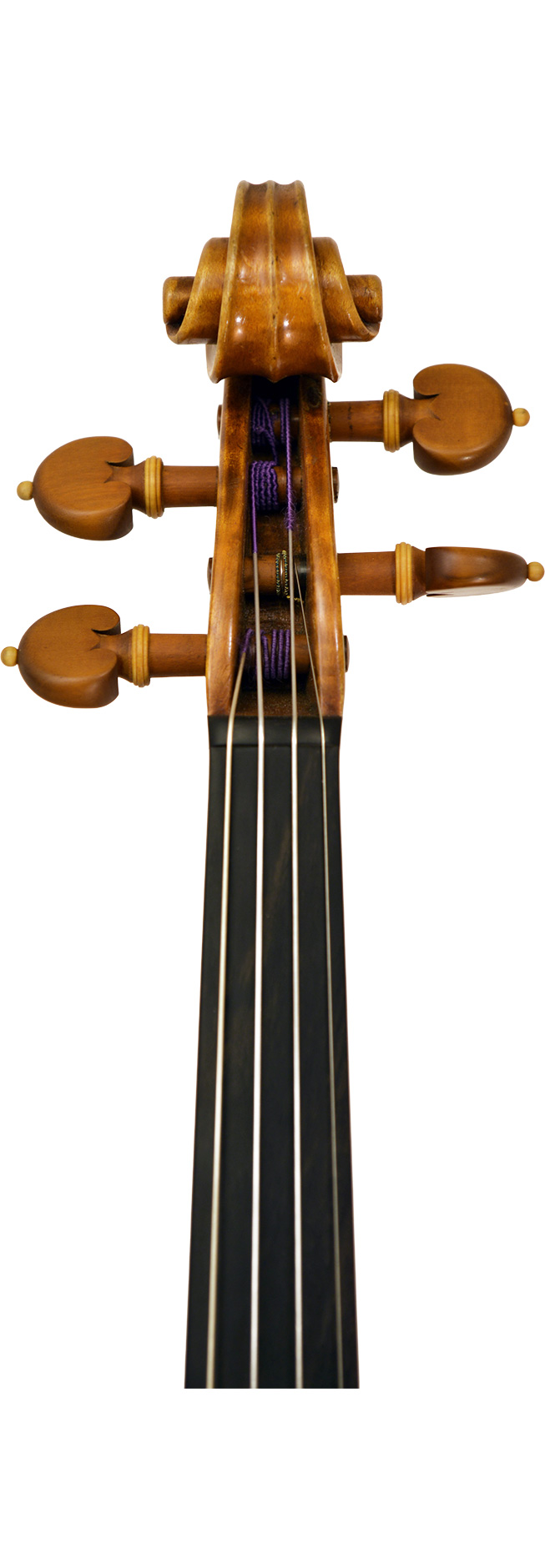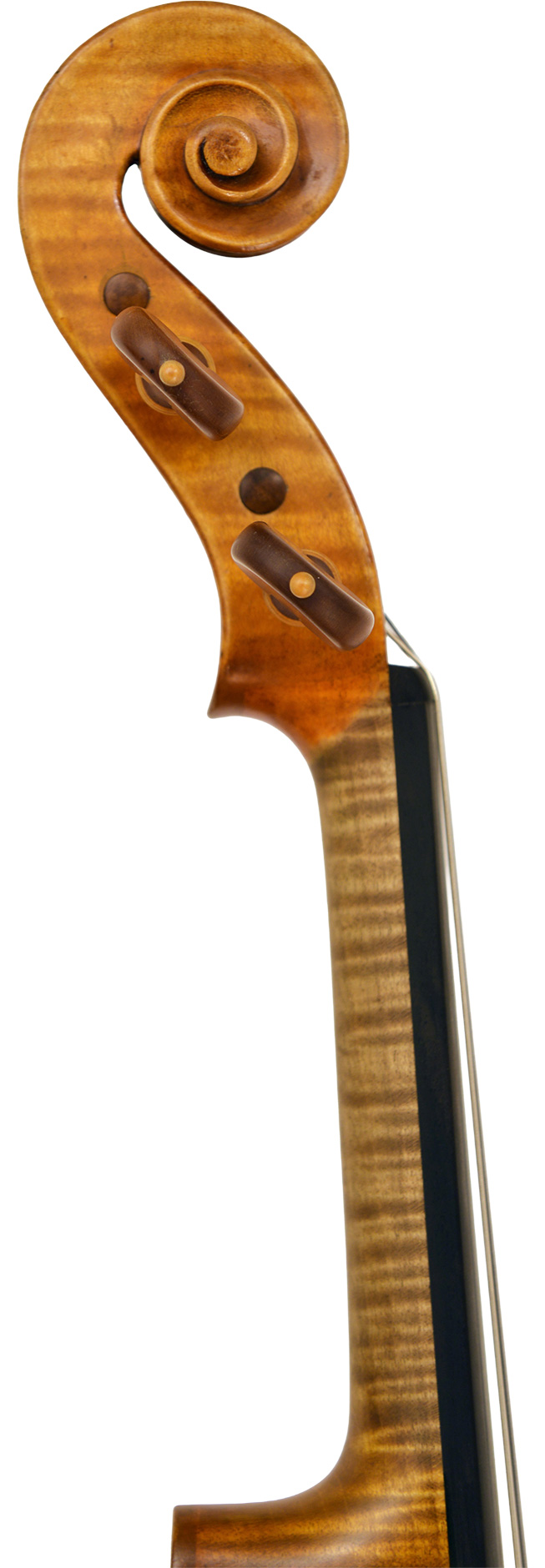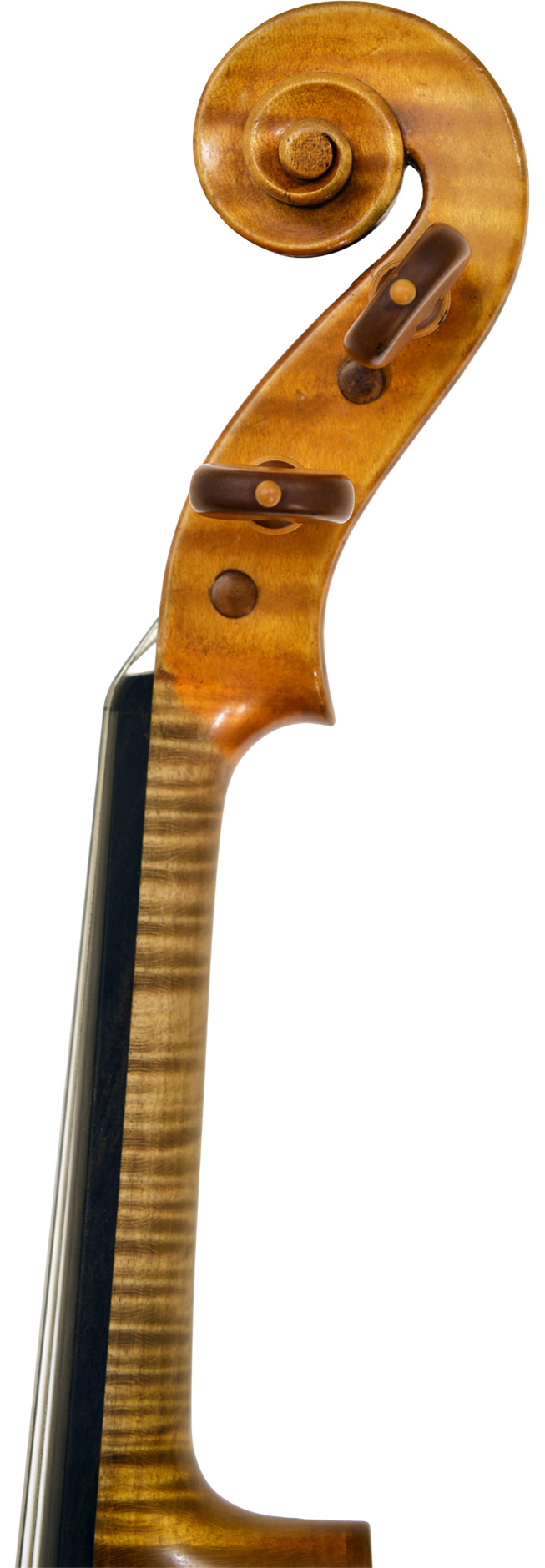Ansaldo Poggi 1945
Ansaldo Poggi (1893-1984) was one of the celebrated Italian violin makers of the 20th century, and he was known to have made the supreme period of the Bologna School. He was born in Villa Fontana, Emilia-Romagna Region, Italy. When he was small, he learned the basic skills of woodwork from his father, who was a wood craftsman. Then he studied with Giuseppe Fiorini, the renowned violin maker, to learn violin-making techniques of the Cremonese School based on Stradivari’s making style. By 1920s, he received gold medals in international competitions, which was outstanding for his age. His artwork was so perfect that there was an episode that he received a comment from the competition jury that said, “Please refrain from any more participation.”
After such reputation in competitions like that, Poggi continued to make violins energetically, and reached the worldwide reputation as one of the celebrated Italian violin making masters by 1960s. It is said that every young maker who visited his atelier was deeply influenced from his high preciseness and aesthetics. He made over 300 violins, some violas and some cellos in his life. Though he passed away in 1984, many pieces of his artwork are still loved and played by soloists over the world.
For Poggi, who never stopped making violins during the time of the war, the year of 1945 was very special. This violin was made in the year when the long war was ended, peace was back and his new creativity spirit also came back. It can be said this violin is a piece of artwork when his skills and spirit were most ripened.
This violin, made in 1945, shows the well-balanced beautiful shape, that is one of Poggi’s characteristics. The arch is simply very beautiful and slightly higher. The edges were very delicately finished up. The scroll has soft up-and-downs. Vertical feeling of the f-holes gives somewhat strong impression though they show elegant openness. The varnish is reddish orange-brown, and its transparent glossiness produces the beauty of the wood grain.
The sound is clear but Poggi’s own warmness is merged there. The higher sounds have silky feeling and the lower sounds have deep and magnanimous feeling. It responds very quickly and resounds powerfully with its whole body.









